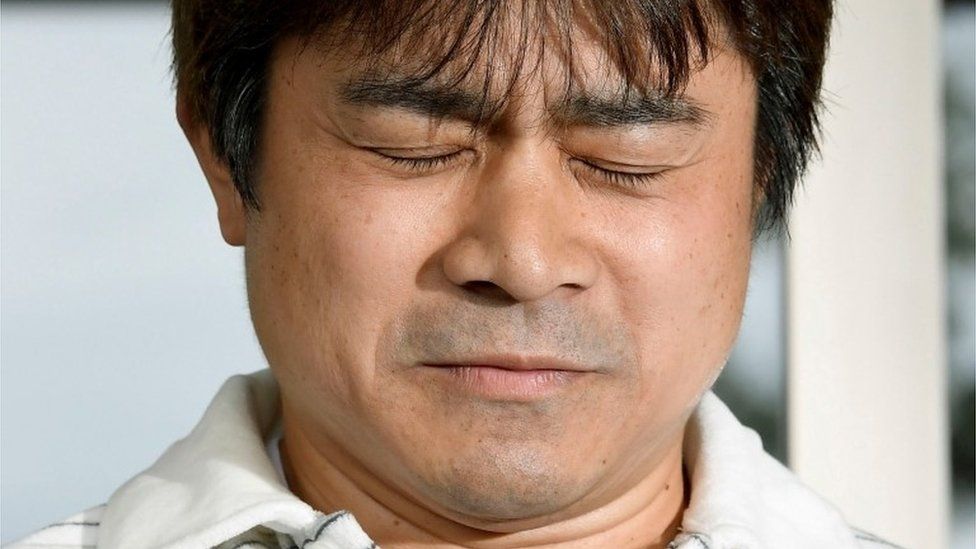The lost boy and Japan’s parenting debate
- Published

It was a bizarre story from the outset.
A boy was lost in the woods while the family was foraging for wild vegetables. But then the story changed - he was lost because he had been abandoned by his parents and not just once, but twice in a very short space of time.
Since news of his disappearance broke early on Sunday and then the dramatic admission by his parents within 24 hours that they had actually left him in the woods as a punishment, the Japanese public has collectively worried about Yamato Tanooka, trying to make sense of the situation.
'Discipline' and Japanese social pressure
Abuse? Monster parents? Hansel and Gretel? Or was it just bad parenting, parents pushed over the edge by an active seven-year-old?
Active enough, and resourceful enough as it turns out, to trek his way across about 5km (3 miles) and find shelter in a barrack under a roof with mattresses.
That the boy's father made him get out of the car "to discipline him", but couldn't say so at first because he was afraid of what "people would think" has touched many a nerve.
The word he used was "sekentei" - literally, how one is seen by society. The sense of societal shame he conveyed, on top of his concern for his boy, was perhaps a touch too "Japanese" for many here.
Hardly anybody voiced support for the father, there was simply no debate about that. The parents should not have let the boy out of their sight, was the consensus.
Naoki Ogi, a TV personality and pedagogy expert, better known as "Ogi-mama", condemned the parents outright, saying this was neglect and abuse. He also noted and criticised how many parents in Japan tend to see their children as their personal possessions.
Abuse or something more nuanced?
But then opinions started to vary and there were some more nuanced and sympathetic views.
"Raising kids is hard" seemed to be the collective sigh heard around social media, TV talk shows, and proverbial water coolers.
One famous morning talk show host, Tomoaki Ogura, sympathised with the parents on Monday, on his Fuji TV show "Tokudane!". Mr Ogura said: "To say 'If you're so bad, we can't take you along, just stay here' is a valid way of scolding a child."
Many recalled how they too were shut out of their homes as children, left throwing a tantrum on the toy shop floor, or shut in a dark closet.
A well-known literary critic, Yumi Toyozaki, tweeted on Tuesday: "I was a restless, rambunctious, cantankerous child, so I feel very much for the father who left his child in the woods for a bit in order to discipline him. I hope people stop condemning him."
The incident has had many sharing childhood memories of how parents pretended to leave them or their siblings for refusing to listen.
Sharing the pain of parenting
Parents also wrote they knew all too well that when small children decide to run off, they can disappear in a flash - there are times when they are simply at the end of their tether.
Tomoko Miyakoda , a mother of a four-year old boy, said you have to be extra careful to avoid the worst.
But she also stresses it's simply not normal to leave a child anywhere and found it impossible to understand why the parents left their boy in the woods like that.
But the verdict seemed clear, you don't let a child out of your sight, least of all in a bear-inhabited neck of the woods.
So the Japanese public has spent this past week discussing good and bad parenting, what is acceptable punishment and what is abuse.
It has come a long way from the days when it was totally fine for a parent to smack a child and many argue this wasn't a clear-cut case of abuse, which is regrettably still too common.
- Published3 June 2016
- Published3 June 2016
- Published3 June 2016